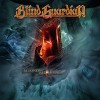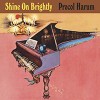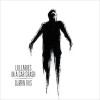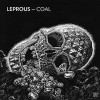Loading cart

Invictus (The 11th Hour)
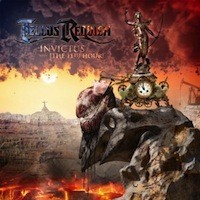
"Tellus Requiem was formed back in 2007 by guitarist Stig Nergård. In 2010 Tellus Requiem released a self-titled debut album digitally. This album opened up some doors for the band, and resulted in some live concert supporting acts like Keep of Kalessin, Edenbridge, and Pagan's Mind. “Invictus” was mixed and mastered by Tommy Hansen (Jailhouse Studios, Jorn, TNT, Helloween) with the cover art done by Thomas Ewerhard (Symphony X, Theater).
According to the band’s biography, the main theme of the band’s writing is about worlds shattering to pieces. This can either be global or personal experience, fictional or literary. Tellus Requiem means; the earths death mass. Tellus being Latin for The Earth, Requiem being the last composition a composer writes before they die. Listening to the ten tracks featured on “Invictus”, it’s obvious that the band is comprised of five very talented musicians with a love for melodic progressive metal in the style of Symphony X and Dream Theater with flourishes of Eastern Folk and the big sound of a motion picture film score (as is evident on the opening instrumental song “Ab Aeterno”). “Red Horizon” kicks in with a vengeance and is highlighted by very Symphony x-like keyboard work by Anders Sundbø (whose frenzied playing style steals the show on this song) and heavy guitar crunch by Nergård. Vocalist Ben Rodgers has a unique and impressive style and range without resorting to sounding like peers such as James Labrie or Russell Allen.
Drummer Vidar Lehmann shows off his considerable chops and fast feet on the middle-eastern tinged “Eden Burns”. A beautiful acoustic guitar passage introduces “Reflection Remains” which leads into a melodic and majestic vocal performance by Rodgers accented by soaring harmonies and a soulful yet blistering guitar solo by Nergård. The heavy melodic prog metal of “Twilight Hour” has plenty of melody, groove, instrumental chops, and odd time signatures to satisfy the most jaded prog metal fan. “Sands of Gold” is a complex and chaotic attack of progressive drum patterns, middle-eastern melodies, heavy guitar and keyboard wizardry with Rodgers voice providing the melodic anchor holding it all together. The appropriately titled “Tranquility” is a slower, peaceful and introspective song with Rodgers showing his emotional side as well as his considerable range to great effect. “Redemption” starts off with an impressive Spanish style guitar playing and kicks into a heavy guitar rhythm and aggressive lead vocals and beautiful harmony vocals courtesy of a vocal choir. The heavy prog of “Invictus” is a fast paced and the vocals and musicianship are razor sharp here. The final song is “Dies Irae” which is the “day of wrath” and was an old Medieval poem sung during the Mass of the Dead ceremony, is a short and sweet outro track and a fine way to end this musical journey. For such a young band, Tellus Requiem has created a stunning and impressive progressive metal feast that fans of Symphony X and Dream Theater will find quite enjoyable. " - The Metal Pit





